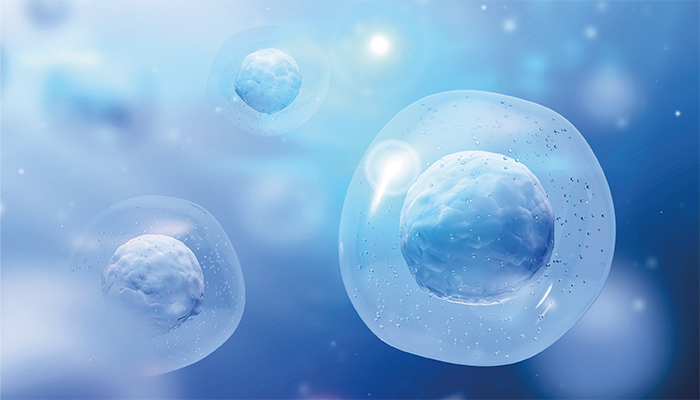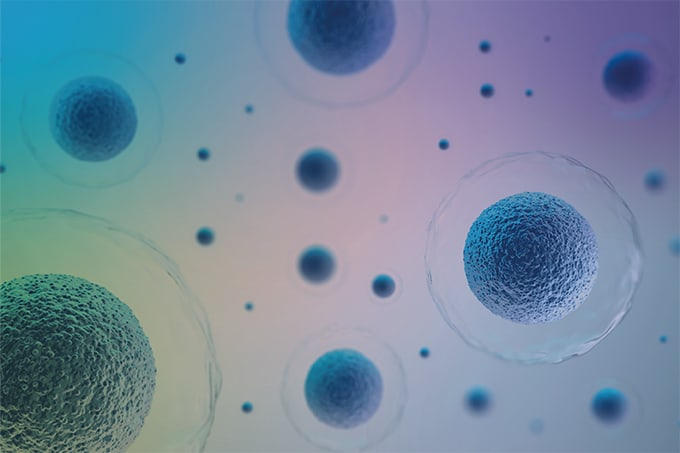
Credit: Adobe Stock
Glucose, long known as a universal fuel source for cells, has been identified as a key regulator of tissue differentiation in a study from Stanford Medicine. The research shows that glucose promotes the specialization of stem cells into mature tissues not by being metabolized, but by directly binding to proteins that control gene expression.
“This is an entirely new and growing field,” said senior author Paul Khavari, chair of dermatology at Stanford Medicine, in a press release. “People have thought that small biomolecules like glucose were quite passive in the cell. This is another piece of evidence to pay close attention to other roles these molecules might play.”
The findings emerged from an unbiased screening of biomolecular changes during skin cell differentiation, using mass spectrometry coupled with high-throughput analysis. The researchers identified 193 molecules that changed significantly as human epidermal stem cells matured into keratinocytes. Unexpectedly, glucose was among the most elevated.
“We had expected glucose levels to decrease during differentiation,” Khavari said. “Yet glucose levels in the cells increase significantly as they move from epidermal stem cells to differentiated keratinocytes.”
The team validated this rise in glucose using fluorescent and radiolabeled glucose analogs, as well as genetically encoded intracellular glucose sensors. These showed consistent glucose increases across multiple human cell types – including fat, bone, and white blood cells – and in engineered mouse models.
Further experiments revealed that intracellular glucose accumulation was due to increased import and reduced export, without a corresponding rise in glycolysis or glucose catabolism. Transcriptomic analysis showed that low glucose levels affected the expression of over 3,000 genes involved in differentiation. Importantly, cell differentiation resumed in glucose-depleted skin organoids when treated with a non-metabolizable glucose analog, indicating that the effect was independent of glucose’s role in energy production.
“That was really the biggest shock,” said Khavari. “These glucose analogs support differentiation just as well as regular glucose.”
Proteomic analysis using affinity purification mass spectrometry identified hundreds of glucose-binding proteins, including the transcription factor IRF6. Structural studies indicated that glucose binding alters IRF6 conformation, thereby influencing gene expression linked to differentiation.
“We’re seeing glucose acting like a broadcast signal in the cell,” Khavari said. “It’s like a fire alarm going off in a firehouse. Everyone in the firehouse activates in response.”
The study suggests new directions for understanding conditions such as diabetes – where glucose dysregulation impairs wound healing – and cancers, where failure to differentiate is a hallmark. Some glucose analogs under investigation as anticancer agents may act not by starving tumors of energy, but by promoting differentiation of immature cancer cells.
“This finding is a springboard for research on dysregulation of glucose levels, which affects hundreds of millions of people,” said Khavari.




